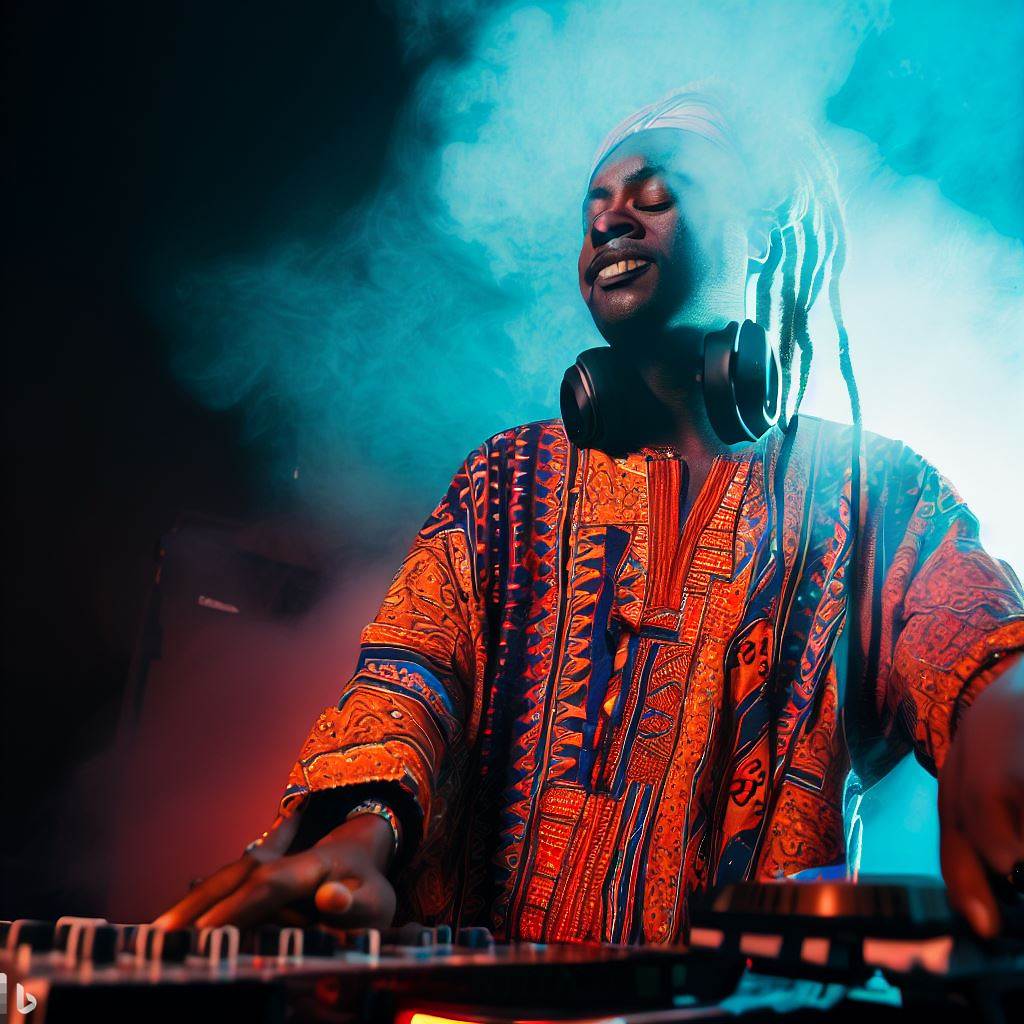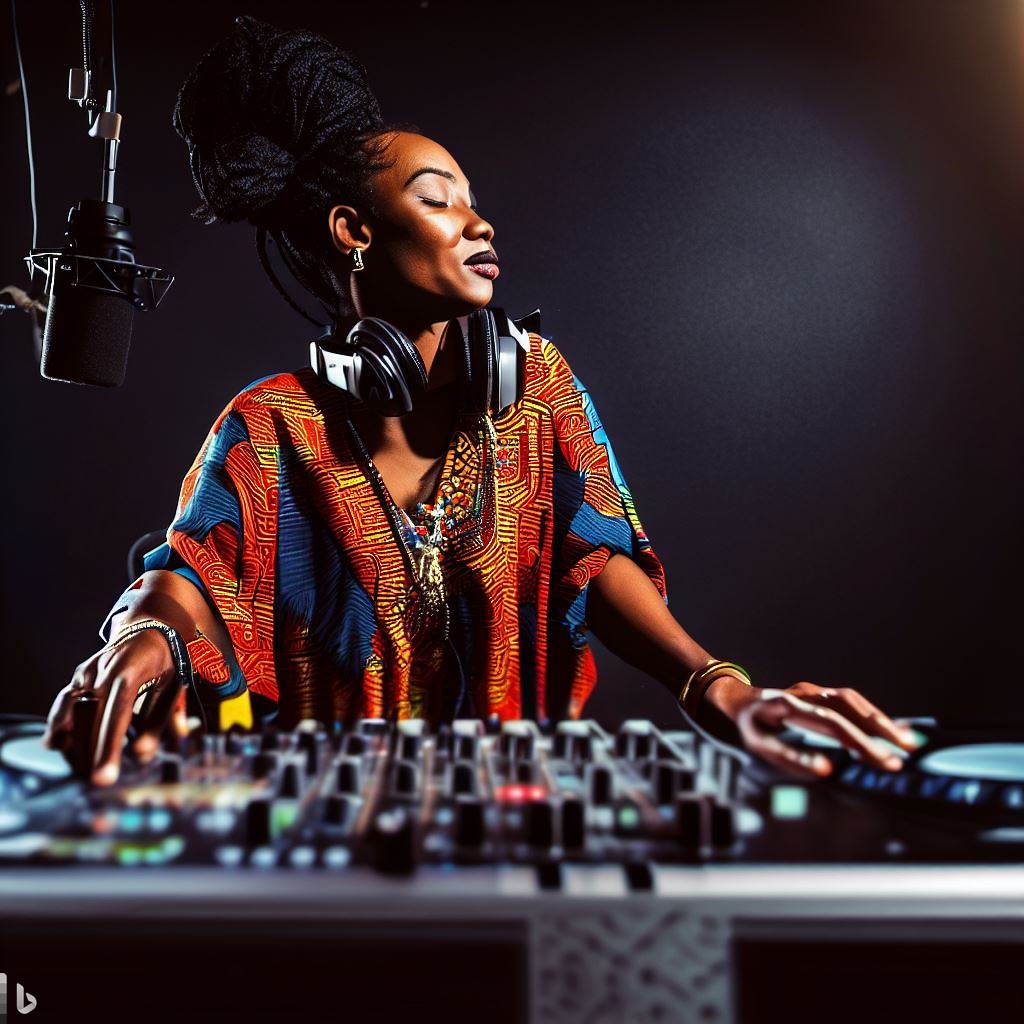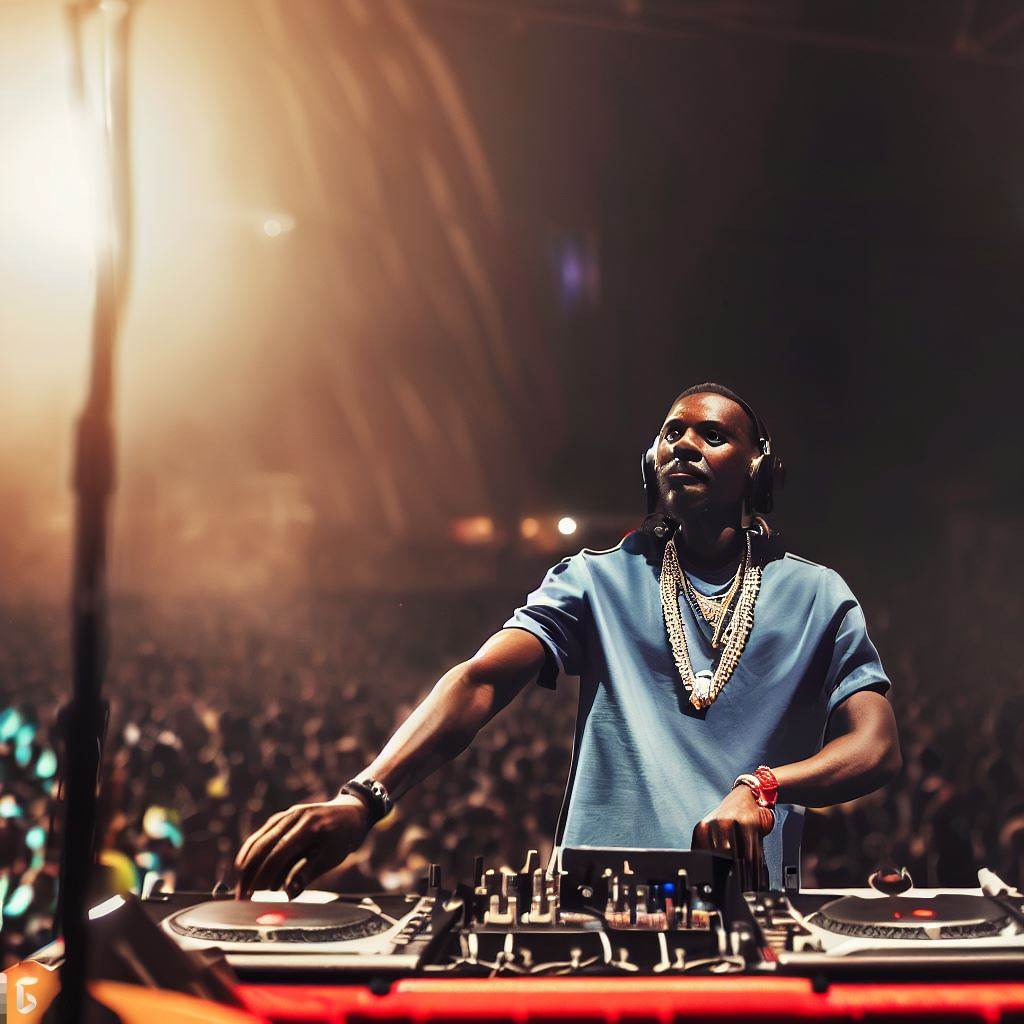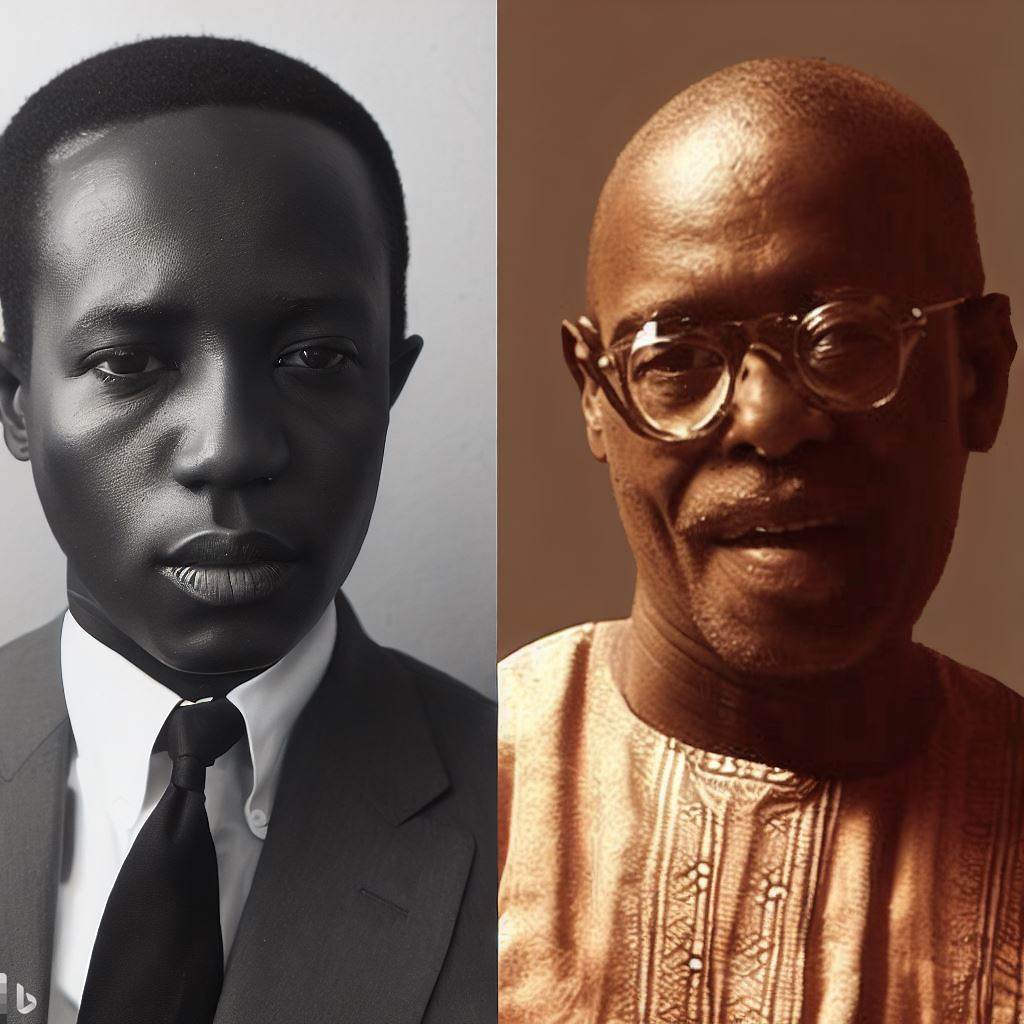Introduction
Definition of Afrobeat and DJ culture
Afrobeat and DJ culture encompass the fusion of traditional African rhythms and contemporary electronic music.
Brief overview of the increasing influence of Afrobeat in DJ culture in Nigeria
Afrobeat has gained significant influence in DJ culture in Nigeria, shaping the country’s music scene.
Historical Development of Afrobeat in Nigeria
Origin and evolution of Afrobeat genre
- Afrobeat, a fusion of traditional West African rhythms and American funk and jazz, originated in the late 1960s.
- It was pioneered by Nigerian musician and activist, Fela Kuti, who combined various musical elements to create a unique sound.
- Afrobeat draws inspiration from traditional Yoruba music, highlife, jazz, and soul, creating a vibrant and energetic genre.
- The genre evolved over time, incorporating elements of Afro-Cuban music, psychedelic rock, and other global influences.
- Today, Afrobeat continues to evolve and adapt, incorporating modern electronic sounds, hip-hop, and dancehall.
Key figures and pioneers of Afrobeat in Nigeria
- Fela Kuti, often referred to as the “Father of Afrobeat,” played a crucial role in the development and popularization of the genre.
- His politically charged lyrics and his band, Africa ’70, created a sensation with their energetic and captivating performances.
- Other key figures in the Afrobeat movement include Tony Allen, Fela’s drummer, who contributed to the distinct rhythm of the genre.
- Orlando Julius, whose blend of Afrobeat and highlife music helped popularize the genre in the 1970s.
- These pioneers paved the way for a new generation of Afrobeat artists who continue to push the boundaries of the genre.
Key events and movements that shaped Afrobeat’s influence in Nigeria
- The rise of Afrobeat coincided with Nigeria’s struggle for independence and political unrest in the 1960s and 1970s.
- Fela Kuti used his music and performances as a platform to criticize the Nigerian government and fight for human rights and justice.
- He established the Kalakuta Republic, a commune and recording studio, which became a symbol of resistance against the oppressive regime.
- Fela’s music gained international recognition, and he became a symbol of African resistance and liberation.
- Afrobeat’s influence spread beyond Nigeria, inspiring artists across the globe and becoming a symbol of African identity and empowerment.
Overall, the historical development of Afrobeat in Nigeria is a story of innovation, resistance, and cultural fusion.
It originated as a fusion of traditional West African rhythms and American influences, evolving to incorporate various global sounds.
Pioneers like Fela Kuti and Tony Allen were crucial in shaping the genre and using it as a tool for activism and social change.
Their influence, along with key events and movements, shaped Afrobeat’s prominence in Nigeria and its global impact.
Today, Afrobeat continues to thrive as a vibrant and influential genre, captivating audiences and inspiring artists worldwide.
The Emergence and Growth of DJ Culture in Nigeria
Overview of DJ Culture in Nigeria
- The DJ culture in Nigeria has seen significant growth and influence in recent years.
- DJs have become essential figures in the country’s music and entertainment industry.
- Nigerian DJs are known for their ability to blend different genres of music seamlessly.
- They play a vital role in creating the perfect atmosphere for parties, clubs, and events.
- This culture has become a platform for DJs to showcase their talents and gain recognition.
Factors contributing to the rise of DJ culture in the country
- Technological advancements, such as affordable DJ equipment and software, have made it easier for aspiring DJs to start.
- The popularity of Afrobeat music globally has brought the spotlight to Nigerian DJs.
- The Nigerian music industry has experienced significant growth, creating more opportunities for DJs.
- Social media platforms and online streaming have amplified the exposure and reach of Nigerian DJs.
- The rise of music festivals and events in Nigeria has provided platforms for DJs to showcase their skills.
The role of DJs in promoting Nigerian music internationally
- Nigerian DJs have played a pivotal role in spreading Nigerian music to the global stage.
- They curate playlists and mixtapes featuring Nigerian artists, introducing their work to international audiences.
- By blending international and Nigerian music, DJs have made Afrobeat more accessible and appealing worldwide.
- DJs frequently collaborate with international artists, creating a fusion of sounds that appeals to a broader audience.
- Nigerian DJs are often invited to perform at international events, further promoting Nigerian music and culture.
Generally, the emergence and growth of DJ culture in Nigeria have been remarkable.
From creating the perfect party atmosphere to promoting Nigerian music internationally, DJs have become influential figures in the country’s entertainment industry.
Technological advancements, the popularity of Afrobeat, and the rise of music festivals have all contributed to the rise of DJ culture in Nigeria.
Nigerian DJs continue to play a significant role in spreading Nigerian music, showcasing their talents globally, and contributing to the country’s cultural prominence.
Intersection of Afrobeat and DJ Culture in Nigeria
Afrobeat, a popular music genre with its roots in Nigeria, has been gaining significant influence in DJ culture in recent years.
This section explores the adoption of Afrobeat by DJs, the incorporation of Afrobeat elements in DJ mixes and performances, and the collaborations and synergies between Afrobeat artists and DJs.
The adoption of Afrobeat by DJs
- DJs in Nigeria have recognized the immense popularity of Afrobeat among the youth and have started incorporating it into their playlists.
- This adoption of Afrobeat by DJs has helped in the resurgence of the genre and has introduced it to a wider audience.
- DJs play a crucial role in promoting Afrobeat by featuring its tracks in clubs, parties, and popular radio shows.
- The rise of Afrobeat in DJ culture has led to a renewed interest in Nigerian music and has contributed to the growth of the local music industry.
- Many DJs have also taken it upon themselves to educate their audiences about the history and significance of Afrobeat.
The incorporation of Afrobeat elements in DJ mixes and performances
- DJs have begun experimenting with blending Afrobeat elements, such as Fela Kuti’s infectious rhythms and instrumentation, into their mixes.
- This fusion of Afrobeat with other genres like hip-hop, dancehall, and electronic music has resulted in unique and exciting DJ performances.
- DJs often use Afrobeat samples and loops to add energy and vibrancy to their sets, creating a dynamic and infectious atmosphere on the dancefloor.
- The incorporation of Afrobeat elements in DJ mixes has helped bridge the gap between traditional African music and contemporary electronic music.
- These DJ performances have become a platform for showcasing the richness and diversity of Afrobeat, contributing to its continued growth and relevance.
Collaborations and synergies between Afrobeat artists and DJs
- The rising influence of Afrobeat in DJ culture has paved the way for artists and DJs to collaborate and create groundbreaking music.
- Afrobeat artists often enlist the expertise of DJs to remix their tracks, giving them a fresh and modern spin.
- These collaborations between Afrobeat artists and DJs have resulted in unique tracks that blend traditional Afrobeat with contemporary electronic sounds.
- DJs have also played a significant role in promoting Afrobeat artists, introducing their music to new audiences through their performances and radio shows.
- The synergy between Afrobeat artists and DJs has created a mutually beneficial relationship, allowing both parties to expand their reach and influence in the music industry.
In a nutshell, the intersection of Afrobeat and DJ culture in Nigeria has had a transformative effect on both the genre and the DJ scene.
The adoption of Afrobeat by DJs, the incorporation of Afrobeat elements in DJ mixes and performances, and the collaborations between Afrobeat artists and DJs have propelled the genre to new heights.
This integration has not only rejuvenated Afrobeat but also contributed to the overall growth and diversification of Nigerian music.
The future looks promising for the rising influence of Afrobeat in DJ culture in Nigeria.
Read: Survival Guide for New Cruise Ship Entertainers in Nigeria

Effects and Impacts on Nigerian Music Industry
Increased popularity of Afrobeat music locally and globally
- Afrobeat’s rise in popularity has made it one of Nigeria’s most influential music genres.
- With its infectious beats and unique blend of traditional African rhythms and Western influences, Afrobeat has captivated listeners worldwide.
- This newfound popularity has allowed Nigerian artists to gain recognition and success on a global scale.
- Artists such as Fela Kuti, Wizkid, and Burna Boy have become household names, attracting fans from all corners of the globe.
- Additionally, the increasing popularity of Afrobeat has led to more international collaborations, creating a fusion of diverse musical styles and expanding its reach even further.
Influence on music production and sound engineering techniques
- Afrobeat’s rise in DJ culture has had a significant impact on music production and sound engineering techniques in Nigeria.
- Producers and sound engineers have had to adapt to the unique sound of Afrobeat, incorporating its distinct elements into their work.
- The use of live instruments, such as drums and brass sections, has become more prevalent in music production.
- Furthermore, DJs and producers have embraced the art of sampling and remixing Afrobeat tracks, adding their own creative touch to the genre.
- This experimentation has pushed boundaries and led to the development of new production techniques, contributing to the evolution of Nigerian music.
Exploration and experimentation within Afrobeat and DJ culture
- Afrobeat’s growing influence in DJ culture has encouraged artists to explore and experiment within the genre.
- DJs have the freedom to blend Afrobeat with other musical styles, creating unique and innovative sounds.
- This experimentation has paved the way for sub-genres such as Afro-house and Afro-pop, which have gained popularity both locally and globally.
- Furthermore, DJs have become trendsetters, shaping the music scene by introducing new sounds and styles to the audience.
- By pushing the boundaries of Afrobeat and DJ culture, Nigerian artists are leaving a lasting impact on the music industry, creating a legacy for future generations.
In short, the rising influence of Afrobeat in DJ culture in Nigeria has had a profound impact on the country’s music industry.
The increased popularity of Afrobeat music locally and globally has given Nigerian artists a platform to showcase their talent to a wider audience.
Moreover, Afrobeat’s influence on music production and sound engineering techniques has led to experimentation and innovation, pushing the boundaries of Nigerian music.
The exploration and experimentation within Afrobeat and DJ culture have allowed Nigerian artists to create unique sounds and sub-genres, contributing to the evolution of the music industry.
As Afrobeat continues to make waves, its effects and impacts on Nigerian music will continue to shape the future of the industry.
Read: Networking Tips for Cruise Ship Entertainers in Nigeria
See Related Content: DJ Equipment Essentials: The Nigerian DJ’s Starter Kit
The Social and Cultural Significance of Afrobeat in DJ Culture
Afrobeat as a Medium for Social and Political Commentary
- Afrobeat serves as a powerful tool to voice social and political concerns within Nigeria.
- Through their music, Afrobeat artists address issues such as corruption, inequality, and oppression.
- The energetic and pulsating beats of Afrobeat act as a catalyst for social activism.
- Fela Kuti, the pioneer of Afrobeat, used his music to challenge the Nigerian government, influencing political discourse.
- DJs in Nigeria continue to incorporate Afrobeat into their sets, allowing the messages to reach a larger audience.
- Afrobeat’s active voice encourages listeners to take a stand, inciting change in society.
Afrobeat’s Role in Promoting Nigerian Identity and Heritage
- Afrobeat embodies the essence of Nigerian culture, highlighting its rich history and traditions.
- The blend of traditional African rhythms and contemporary sounds in Afrobeat showcases Nigeria’s musical diversity.
- By integrating traditional instruments with modern technology, Afrobeat bridges the gap between old and new.
- DJs in Nigeria play a significant role in preserving and promoting Nigerian cultural heritage through Afrobeat.
- Afrobeat’s popularity has transcended Nigerian borders, contributing to the global recognition of Nigerian identity.
- Through Afrobeat, the country’s image is enhanced, attracting tourists and fostering national pride.
Fostering Unity and Celebration of Cultural Diversity through Afrobeat and DJ Culture
- Afrobeat serves as a unifying force, bringing together people from different tribes and backgrounds.
- The rhythmic beats and infectious melodies of Afrobeat create a shared experience, transcending cultural boundaries.
- DJ culture in Nigeria acts as a platform for diverse cultural expressions and collaborations.
- Afrobeat and DJ culture encourage cultural exchange, promoting understanding and appreciation among Nigerians.
- The celebration of cultural diversity through Afrobeat and DJ culture strengthens national cohesion.
- Afrobeat-inspired festivals and events unite Nigerians, fostering a sense of belonging and collective identity.
To summarize, Afrobeat’s influence in DJ culture within Nigeria holds immense social and cultural significance.
It serves as a medium for social and political commentary, giving a voice to the concerns of Nigerians.
Afrobeat also plays a vital role in promoting Nigerian identity and heritage, showcasing the country’s diverse cultural landscape.
Additionally, Afrobeat and DJ culture foster unity and celebrate cultural diversity, creating a sense of togetherness among Nigerians.
The power of Afrobeat lies in its ability to inspire change, connect people, and shape Nigeria’s cultural fabric.
Read: Lifestyle of a Nigerian Cruise Ship Entertainer: A Closer Look
See Related Content: Music Director Salary Guide in Nigeria: What to Expect
Challenges and Opportunities in the Future
Preservation of Afrobeat’s authenticity amidst commercialization
- As Afrobeat gains more popularity, there is a risk of diluting its original sound and message.
- The commercialization of Afrobeat can lead to the production of watered-down versions for mass consumption.
- Local artists and DJs need to remain committed to preserving the authenticity and essence of Afrobeat.
- Efforts should be made to educate the audience about the roots and cultural significance of Afrobeat.
- Collaborations between traditional Afrobeat musicians and modern DJs can help maintain the genre’s integrity.
Addressing gender disparities within Afrobeat and DJ culture
- Women continue to face challenges and limited opportunities within the Afrobeat and DJ industry.
- Efforts must be made to empower and encourage more women to pursue careers as DJs and Afrobeat artists.
- Organizations and initiatives should be established to provide training and mentorship for aspiring female DJs.
- Concert and festival organizers should be mindful of gender representation in their lineups.
- Creating safe spaces for women within the Afrobeat and DJ community is crucial for inclusivity.
Expanding international recognition and opportunities for Afrobeat DJs and artists
- Afrobeat has the potential to reach global audiences and make a significant impact on the international music scene.
- Africa’s rich musical heritage, including Afrobeat, should be promoted and celebrated worldwide.
- Efforts should be made to secure more international collaborations and partnerships for Afrobeat artists.
- Events and platforms dedicated to showcasing Afrobeat music and DJs should be established globally.
- Promotion and distribution channels need to be expanded to ensure Afrobeat reaches a wider audience.
In summary, despite the challenges that Afrobeat and DJ culture in Nigeria may face in the future, there are also opportunities for growth and development.
It is important for artists and DJs to prioritize the preservation of Afrobeat’s authenticity amidst commercialization.
Addressing gender disparities and providing equal opportunities for women within the industry is crucial for its inclusivity and progress.
Additionally, expanding international recognition and opportunities for Afrobeat DJs and artists will contribute to the genre’s global success and impact.
By overcoming these challenges and seizing opportunities, Afrobeat and DJ culture in Nigeria can continue to thrive and make a lasting mark on the music industry.
Read: Nigeria’s Cultural Influence on Cruise Ship Entertainment
Discover More: Cruise Ship Entertainer’s Earnings in Nigeria: A Deep Dive
Conclusion
Recap of the rising influence of Afrobeat in DJ culture in Nigeria
Over the past decade, Afrobeat has gained significant prominence in Nigerian DJ culture.
The fusion of traditional Nigerian music with contemporary beats and sounds has captivated both local and international audiences.
Significance of Afrobeat in shaping the Nigerian music scene
Afrobeat has played a crucial role in shaping the Nigerian music scene, breaking barriers and redefining the country’s cultural identity.
With its infectious rhythm and powerful lyrics, Afrobeat has become a symbol of Nigerian pride and resilience.
Final thoughts on the future prospects and potential growth of Afrobeat and DJ culture in Nigeria
- The future of Afrobeat and DJ culture in Nigeria looks incredibly promising.
- As the genre continues to evolve and gain recognition worldwide, Nigerian artists and DJs are poised to make even greater contributions to the global music industry.
- With the advent of digital platforms and social media, Afrobeat has the potential to reach a wider audience and spark a new wave of creativity and innovation.
- Collaborations between Nigerian artists and international DJs are becoming more common, further cementing the influence of Afrobeat in DJ culture.
- Lastly, Afrobeat’s rising influence in DJ culture in Nigeria cannot be overstated.
- It has revolutionized the Nigerian music scene, bringing together tradition and modernity and paving the way for future generations of artists and DJs.
- As we look ahead, it is evident that Afrobeat will continue to shape the Nigerian music landscape and contribute to the country’s cultural heritage.
- Its infectious rhythm and magnetic appeal make it an unstoppable force in the DJ culture, both in Nigeria and beyond.




